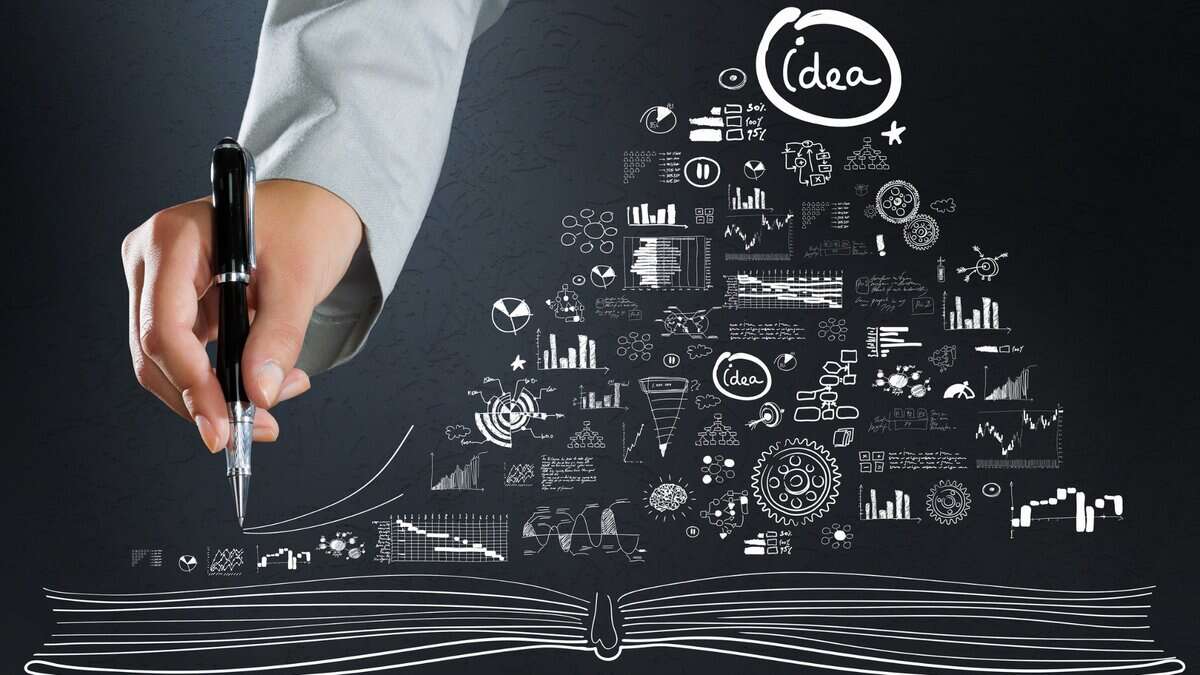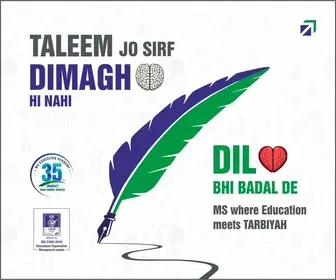
Hyderabad: The importance of education can never be overstated. But in no other religion is it stressed as profoundly as in Islam. The very first revelation of the Holy Quran to Prophet Muhammad (peace be upon him) begins with a command to read — Iqra. In fact the first five verses of Surah Al-‘Alaq place reading, writing, and acquiring knowledge at the very foundation of human development and the Islamic way of life:
Iqra bismi rab bikal lazee khalaq. Khalaqal insaana min ‘alaq. Iqra wa rab bukal akram. Al lazee ‘allama bil qalam. ‘Al lamal insaana ma lam y’alam (96: 1-5).
Translation: Recite in the name of your Lord who created. Created man from a clot of congealed blood. Recite, and your Lord is the Most Generous – Who taught by the pen — taught man that which he knew not.
These opening verses are not just poetic; they are a manifesto for the human mind. They make it clear that knowledge — both revealed and acquired — is central to the purpose of life.
Yet, a painful irony stares us in the face. If one were to study these Quranic injunctions and then look at the condition of Muslims today, the mismatch is glaring. Muslims are perhaps the only community whose current state runs directly contrary to their own divine guidance. How else can one explain the yawning gap between Islam’s passionate call for learning and the stark reality of Muslim literacy rates?
The disturbing reality
India’s Muslims, the second-largest religious group in the country after Hindus, make up 14.2% of the population — over 200 million people. Yet their performance on most educational indicators is poor, often worse than historically disadvantaged Scheduled Castes and Scheduled Tribes. Reports, including the Sachar Committee findings, show that Muslim enrolment in higher education is disproportionately low, dropout rates are high, and access to quality schools remains inadequate.
This is not just an Indian phenomenon. In many parts of the Muslim world, the situation is equally grim. Across vast stretches of the Middle East, Africa, and South Asia, illiteracy among Muslims is alarmingly high. This is despite Islam’s insistence — in unambiguous terms — on acquiring knowledge.
Education: A religious obligation
The notion that Islam is concerned only with the hereafter and ignores worldly learning is a gross misunderstanding. In truth, Islam treats the pursuit of knowledge as a religious duty — farz — upon every Muslim, male and female. Prophet Muhammad declared:
“Seeking knowledge is an obligation upon every Muslim.” (Sunan Ibn Majah, Hadith 224)
This obligation is not limited to religious sciences. The Quran and Sunnah encourage acquiring beneficial knowledge in all fields — from medicine to mathematics, from governance to agriculture. The Prophet himself encouraged his companions to learn skills, study languages, and understand the world around them.
The Prophet strongly encouraged the eradication of illiteracy and cautioned against negligence in teaching and learning. He urged his companions to actively pursue knowledge and entrusted them with the mission of eliminating ignorance. Within a short span, a remarkable number of people emerged as learned individuals under his guidance, as he adopted a system of collective and shared education with his Sahaba. The Prophet proclaimed, “Seeking knowledge is incumbent upon every Muslim,” making it clear that ignorance has no place in the framework of Islam. He also warned that if a learned person neglects the duty of teaching, or if a Muslim fails to acquire the essential knowledge of the faith, both will be held accountable and face punishment.
Another hadith states
“Whoever treads a path seeking knowledge, Allah will make easy for him the path to Paradise.” (Sahih Muslim)
Even more striking is this oft-quoted tradition
“The ink of the scholar is more sacred than the blood of the martyr.”
This shows the high status given to learning, even above acts of sacrifice in battle. It also highlights the transformative power of education. In fact Islamic teachings consistently advocate lifelong and inclusive learning.
The Prophet’s model
The Prophet’s own life is a testament to how deeply Islam values education. After the Battle of Badr, the first major encounter between Muslims and the Quraysh, many enemy combatants were taken as prisoners. The ransom for freedom was typically paid in gold or goods. But for those who were literate, the ransom was to teach ten Muslim children to read and write. This revolutionary policy not only freed the captives but also planted seeds of literacy in the fledgling Muslim community.
In the early years in Madinah, the Prophet established the Suffah — a platform in the Prophet’s Mosque where students lived and studied under his guidance. These learners later became some of the greatest scholars and leaders of Islam.
A glorious legacy of learning
For centuries, Muslims were torchbearers of knowledge. From the 8th to the 14th century, cities like Baghdad, Cordoba, Damascus, and Cairo flourished as centers of scholarship. Libraries such as the House of Wisdom (Bayt al-Hikmah) in Baghdad contained hundreds of thousands of manuscripts when Europe’s largest libraries held only a few hundred.
Muslim scholars like Al-Khwarizmi (the father of algebra), Ibn al-Haytham (the pioneer of optics), and Al-Biruni (a master of astronomy, geography, and mathematics) laid the foundations of modern science. The very word “algebra” comes from Al-Khwarizmi’s book Al-Kitab al-Mukhtasar fi Hisab al-Jabr wal-Muqabala. Muslim astronomers developed accurate star charts, calculated the Earth’s circumference, and built observatories that were centuries ahead of their time.
These achievements were not limited to the natural sciences. In medicine, Ibn Sina’s Canon of Medicine was a standard textbook in European universities for over 500 years. Muslim geographers like Ibn Battuta travelled extensively, mapping regions and recording cultural observations. In philosophy and literature, figures such as Ibn Rushd (Averroes) and Al-Farabi influenced the European Renaissance.
How the West surged ahead
Ironically, it was the West that took these Muslim contributions, translated them into Latin, and used them as stepping stones for its own scientific revolution. From the Crusades to the Reconquista in Spain, European scholars came into contact with Muslim libraries and universities. They absorbed the mathematics, astronomy, medicine, and engineering developed in the Islamic world, and then built upon them.
While Europe marched ahead into the Renaissance and Enlightenment, many parts of the Muslim world stagnated due to political turmoil, colonial domination, and internal decline. The tradition of critical inquiry and scientific advancement weakened, and rote memorization replaced analytical thinking in many institutions. The result: a widening gap between the Muslim world and the West — a gap that persists to this day.
The tragic decline
Neglect of education is both a cause and a symptom of our decline. In many parts of the world, poverty, political instability, and internal divisions have pushed learning to the sidelines. But alongside these external factors lies a painful truth: a large section of Muslims themselves fail to recognize the urgency of education.
Many families still do not prioritize schooling, especially for girls. Outdated notions, lack of role models, and shallow knowledge of their own religion have combined to produce a crisis. In some places, madrassas focus solely on rote religious learning, while neglecting subjects that are essential for functioning in the modern world.
The way forward
To reverse this decline, Muslims must reclaim their heritage as seekers of knowledge. This means:
1. Making education a non-negotiable priority – Just as prayer and fasting are obligatory, so too should be schooling for every child, regardless of gender.
2. Integrating knowledge – Religious and worldly knowledge should go hand in hand. A doctor, engineer, or entrepreneur with Islamic ethics is as valuable as a scholar of the Quran.
3. Community investment – Wealthy Muslims must fund schools, scholarships, and libraries as a form of sadaqah jariyah (ongoing charity).
4. Role models and mentors – Muslim intellectuals, scientists, and writers should inspire the next generation, showing that faith and learning reinforce each other.
The Quran makes a striking comparison between those who learn and those who do not:
“Say, ‘Are those who know equal to those who do not know?” (39:9)
The answer, of course, is no. In the sight of Allah, a knowledgeable believer is of a higher rank than an ignorant one.
A final reminder
The first command of Islam was not pray, not fast, not even belief — it was read. This is no accident. Education is the gateway to faith, understanding, justice, and progress. Until Muslims realign themselves with this divine mandate, they will continue to languish on the margins of society.
It is time to remember the words of the Prophet:
“Acquire knowledge and impart it to the people.” (Sunan al-Tirmidhi, Hadith 107)
In reviving our commitment to education, we not only honour our faith but also secure our future.



